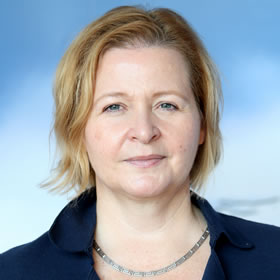Programme traineeship
 |
|
Margit Huber
Logistics and
Programme Assistant
|
Our role, in programme and logistics, is to take care of all the practical aspects of the organisation of workshops and meetings, so that the project teams can concentrate on the project itself. It involves mainly:
- liaising with the coordinators to fix practical details;
- contacting the workshop participants and sending them all kind of documents (practical like hotel and travel documents, invitation letters, etc, but also sometimes serving as a relay between the teams and the participants). It means preparing the documents, formatting them, mailing and filing them;
- assisting the teams and participants during workshops and meetings so that everything runs smoothly;
- assisting in follow-up of activities, reporting and online documentation.
The tasks are divided between the programme assistant, the programme secretary and the trainee. Since we are always preparing a dozen meetings in parallel, which are at various stages of advancement; this requires from all people involved:
- considerable flexibility;
- the ability to work under pressure (we sometimes are like a restaurant where everyone wants to eat at the same time: "le coup de feu" as the French say);
- being organised and thorough in each detail;
- the ability to cope with a certain level of uncertainty, since we sometimes have to react to unexpected problems, despite the fact that we try to map the road as efficiently as possible.
The traineeship offers a good insight into what it takes to run projects and the amount of work that is necessary to reach the level where project participants don't even realise the heavy machinery which lies behind events;.
It teaches how to function in a team, which is a very important aspect;.
The trainee will also have the opportunity to get familiar with the aspects of language education covered by our projects and to meet people who are active in these fields.
Another aspect of programme is keeping track of what is happening - and this means keeping statistical records of events and participation - and translating them into digestable information at the end of the year for our annual reports. It does not mean the trainee needs to be a top-class mathematician, basic Excel skills and a clear mind are what it takes. And basically a good understanding of what the ECML is about. This comes progressively during the traineeship.
We like trainees to suggest ways in which they can contribute to the Centre's work in relation to their own specific skills, competences and interests… this depends on each individual.